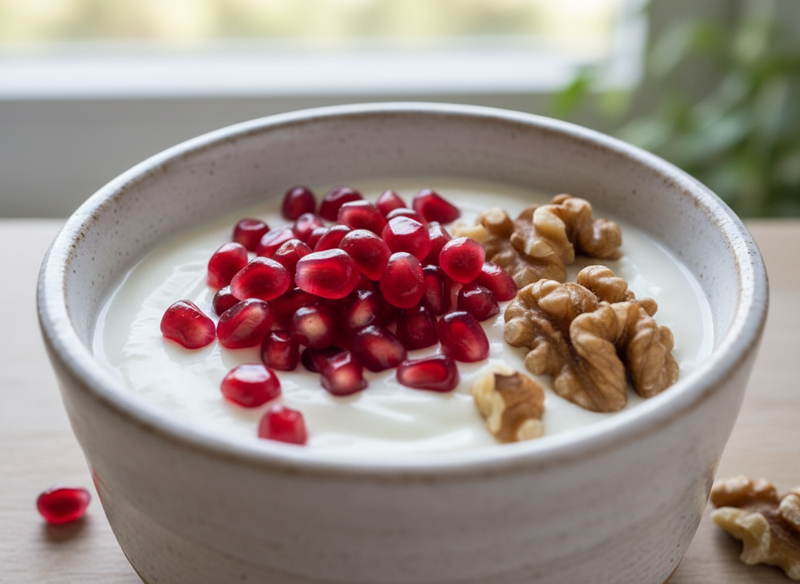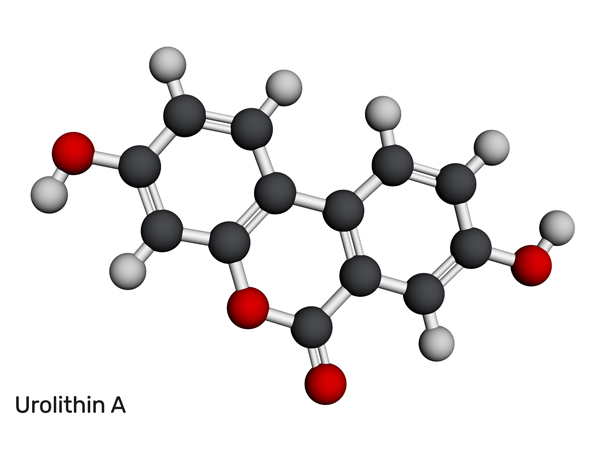
18th November 2025 Pomegranate-derived compound rejuvenates aging immune cells Scientists in Germany report early clinical evidence that Urolithin A, a molecule produced in the gut after eating foods like pomegranates and walnuts, can revitalise key parts of the human immune system.
Our immune system weakens with age. The pool of naïve T cells – a more adaptable type of immune cell – gradually falls. This leaves us less able to respond to new, unrecognised diseases or make full use of vaccines. Older adults also face greater risks from cancer because they often struggle to mount strong immune responses against tumours. Researchers around the world are now searching for ways to slow or reverse these changes, and an emerging line of work is focused on how the food we eat influences long-term immune health. When we consume pomegranates, walnuts, and certain berries, our gut bacteria convert their natural polyphenols into Urolithin A. Although not everyone produces it efficiently, earlier studies found that purified Urolithin A can renew mitochondria (the "powerhouses" of the cell) through a process called mitophagy. This cellular clean-up removes damaged mitochondria and triggers the formation of new, healthy ones, boosting the energy supply inside many types of cells. Scientists already knew that this effect improves muscle function in older adults. Until now, they did not know if it could also rejuvenate the immune system. A new Phase 1 trial led by teams at the Georg-Speyer-Haus and University Medicine Frankfurt now provides early evidence that it can. The researchers enrolled 50 healthy adults aged 45–70 years and randomly assigned them to take either Urolithin A or a placebo for four weeks. The group receiving the compound showed a clear rise in naïve T cells, effectively rebuilding a younger immune profile. The treatment also strengthened other immune cell populations and improved their ability to clear bacteria in laboratory tests. The investigators report that every participant tolerated the treatment well, and they saw no safety concerns during the trial.
"Three years ago, we discovered that Urolithin A could powerfully expand a special population of long-lived, anti-tumour T cells in our laboratory models," explains Dr. Dominic Denk, Principal Investigator of the study and physician-scientist at University Medicine Frankfurt. "Our goal was always to translate our findings from the lab into the clinic. This study is that critical first step and shows that Urolithin A can safely enhance immune function in humans. We are particularly excited about its potential in cancer treatment." "This successful clinical translation is a testament to our strategy at the Frankfurt Cancer Institute, to combine our findings with clinical expertise to accelerate the development of novel therapies that can truly make a difference," said Prof. Florian Greten, Director of the Georg-Speyer-Haus and a spokesperson for the Frankfurt Cancer Institute. "A robust immune system has broad implications. By rejuvenating immune cells, we could make life-saving cancer treatments effective for more patients. We have already initiated a follow-up study in patients undergoing immunotherapy and are very eager to see whether our results will have a positive effect here as well." These findings appear in Nature Aging and will add to the growing interest in longevity molecules and mitochondrial health. If larger trials confirm these results, nutrition-derived compounds like Urolithin A could become part of a new generation of therapies that strengthen our immune defences as we grow older.
Comments »
If you enjoyed this article, please consider sharing it:
|
||||||








